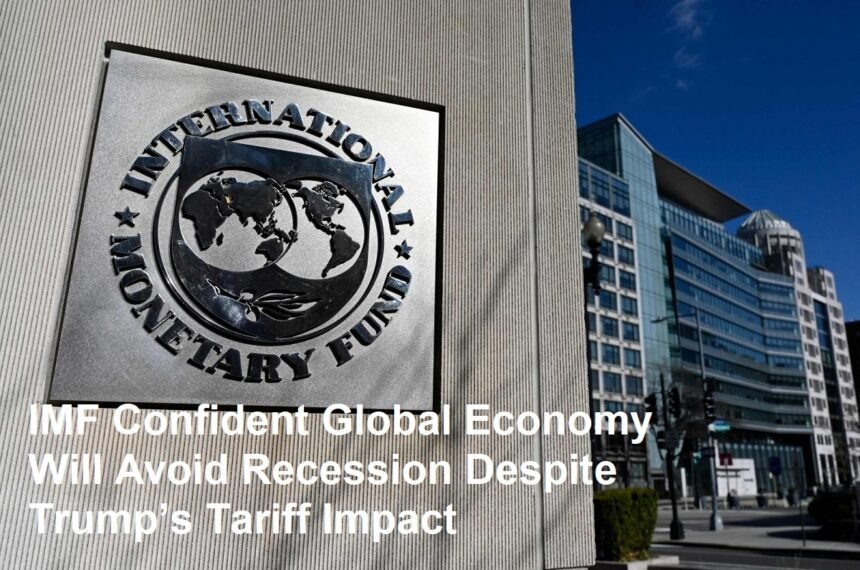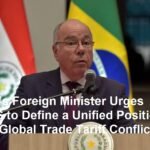The International Monetary Fund (IMF) has recently expressed cautious optimism that the global economy will not slip into a full-blown recession despite the significant disruptions caused by the tariff policies initiated under former U.S. President Donald Trump. While acknowledging that these tariffs have slowed global growth and increased economic uncertainty, the IMF maintains that a recession is not inevitable—at least for now.
Impact of Trump’s Tariffs on Global Growth
Trump’s aggressive tariff measures, which targeted a wide range of countries including major economies like China, have led to a sharp slowdown in global economic growth. The IMF has downgraded its growth forecasts for many countries, including the United States, China, and the Eurozone. For example, U.S. growth projections for 2025 have been cut from 2.7% to 1.8%, while China’s growth forecast dropped to around 4%, reflecting the impact of retaliatory tariffs and trade tensions.
These tariffs have disrupted global supply chains, increased costs for businesses and consumers, and dampened investment and consumer confidence worldwide. The IMF’s Managing Director Kristalina Georgieva described the situation as a “reboot of the global trading system,” with trade policy uncertainty reaching unprecedented levels.
Why the IMF Is Not Predicting a Recession (Yet)
Despite these challenges, the IMF does not currently foresee a global recession. The fund notes that while growth is slowing, it remains positive in most regions. The global economy is expected to continue expanding, albeit at a reduced pace. The IMF’s cautious stance is based on several factors:
- Resilience in Emerging Markets:Many developing countries, such as India, continue to show robust growth prospects, helping to offset slower growth in advanced economies.
- Policy Responses:Central banks and governments are actively managing inflation and financial stability risks through monetary and fiscal policies.
- No Severe Financial Crisis:Unlike past recessions, there is no immediate trigger of a widespread financial crisis, which often precipitates recessions.
However, the IMF has raised the probability of a global recession from 17% to about 30%, and the chance of a U.S. recession is now estimated at around 40%. This means the risk is elevated but not yet a certainty.
Broader Economic Risks and Uncertainties
The IMF also highlighted other risks that could worsen the outlook, including geopolitical tensions, military conflicts, and further disruptions to trade. The ongoing war in Ukraine and tensions in other regions add to global economic uncertainty.
Financial markets have experienced volatility due to tariff announcements and policy shifts, with increased borrowing costs affecting emerging markets in particular. The IMF warns that higher interest rates globally could strain countries with large debt burdens.
The End of an Era of Rapid Globalization?
The IMF’s analysis suggests that the era of rapid globalization, characterized by expanding trade and financial integration since the mid-20th century, may be coming to an end or at least entering a new phase. Trump’s tariffs represent a shift toward protectionism and a more fragmented global trade environment.
This shift has created winners and losers both between and within countries, and the IMF stresses the need for multilateral cooperation to manage these transitions and avoid further economic damage.
Outlook and Recommendations
To navigate these challenges, the IMF recommends:
- Strengthening fiscal and monetary policies to manage inflation and debt sustainably.
- Enhancing social safety nets to protect vulnerable populations.
- Promoting structural reforms to boost productivity and economic diversification.
- Encouraging dialogue and cooperation to reduce trade tensions and geopolitical risks.
The IMF also calls on advanced economies to support developing countries through financial aid and technology transfer, especially to address climate change and foster inclusive growth.
In summary, while Trump’s tariffs have undeniably slowed global economic growth and increased risks, the IMF remains cautiously optimistic that a global recession can be avoided with appropriate policy responses and international cooperation. The situation remains fluid, and the IMF continues to monitor developments closely.









